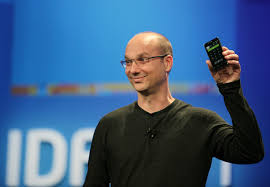
Breaking News
DRINK 1 CUP Before Bed for a Smaller Waist
 Nano-magnets may defeat bone cancer and help you heal
Nano-magnets may defeat bone cancer and help you heal
 Dan Bongino Officially Leaves FBI After One-Year Tenure, Says Time at the Bureau Was...
Dan Bongino Officially Leaves FBI After One-Year Tenure, Says Time at the Bureau Was...
 WATCH: Maduro Speaks as He's Perp Walked Through DEA Headquarters in New York
WATCH: Maduro Speaks as He's Perp Walked Through DEA Headquarters in New York
Top Tech News
 Laser weapons go mobile on US Army small vehicles
Laser weapons go mobile on US Army small vehicles
 EngineAI T800: Born to Disrupt! #EngineAI #robotics #newtechnology #newproduct
EngineAI T800: Born to Disrupt! #EngineAI #robotics #newtechnology #newproduct
 This Silicon Anode Breakthrough Could Mark A Turning Point For EV Batteries [Update]
This Silicon Anode Breakthrough Could Mark A Turning Point For EV Batteries [Update]
 Travel gadget promises to dry and iron your clothes – totally hands-free
Travel gadget promises to dry and iron your clothes – totally hands-free
 Perfect Aircrete, Kitchen Ingredients.
Perfect Aircrete, Kitchen Ingredients.
 Futuristic pixel-raising display lets you feel what's onscreen
Futuristic pixel-raising display lets you feel what's onscreen
 Cutting-Edge Facility Generates Pure Water and Hydrogen Fuel from Seawater for Mere Pennies
Cutting-Edge Facility Generates Pure Water and Hydrogen Fuel from Seawater for Mere Pennies
 This tiny dev board is packed with features for ambitious makers
This tiny dev board is packed with features for ambitious makers
 Scientists Discover Gel to Regrow Tooth Enamel
Scientists Discover Gel to Regrow Tooth Enamel
 Vitamin C and Dandelion Root Killing Cancer Cells -- as Former CDC Director Calls for COVID-19...
Vitamin C and Dandelion Root Killing Cancer Cells -- as Former CDC Director Calls for COVID-19...
The Father of Android Is Back, and He's Built the Anti-iPhone

Andy Rubin wasn't ready to retire when he left Google in 2014. He certainly could have: After an illustrious career developing some of the most innovative products in tech, he had all the wealth and accolades anyone could want. As an engineer at the Apple spinoff General Magic, he built some of the world's first internet-connected portable devices. As CEO at Danger, he created the Sidekick, a smartphone that defined the category before anyone had invented the term. And then, of course, Rubin created Android, the operating system found in more than two billion phones, televisions, cars, and watches.
But Rubin wasn't done. More to the point, he couldn't be done. Ask around, and everyone says the same thing: Andy Rubin sees the future, and can't sit around waiting for it to arrive. He's spent the past few years watching Apple and Google and everyone else try to rule the world from walled gardens, and he considers that a dead end. Rubin has always believed that the open platform is the one that wins.
Most people complain that there's no innovation in smartphones. Andy Rubin disagrees. Vehemently.
And so he's back, as the CEO of Essential Products, his first company since Android. He wants to make Essential the first great gadget maker since Apple, one that builds and distributes the open platform that will power the billions of phones, watches, light bulbs, and toaster ovens about to come online.
That wasn't always the plan. Rubin likes telling a story from just after he left Google, where he spent a decade running Android and a few years leading its robotics projects. Over dinner and wine, he and his wife, Rie, discussed his next move. "How do I top Android?" Rubin asked. "What could I possibly do that would be bigger than that?" "Don't do one thing," Rie replied. "Do 10." And so Rubin launched Playground, a venture capital firm where a few dozen engineers and designers at Playground Studios help startups build stuff.
Rubin and his partners sought out a wide range of investments. "You meet a ton of people, thousands of people," he says. "Some really crazy ideas, some pretty good ideas, some



